QuestionHi Sara,
I am planning on getting a bearded dragon lizard. I have been doing a lot of research on line regarding diet, housing ect. I understand you have to feed your dragon locusts well fed on fruit and veg dusted with vitamins, The only problem is I like locusts and will find this very hard to do, Is there any other insects I can replace the locusts with? I just adore bearded dragons but will only buy one if i am certain I can provide the correct diet. I have recently been asking around in pet shops who sell reptiles and one man told me I would be able to feed it on bearded dragon wet canned food or Exo Terra Bearded dragon complete adult food. I would prefer fresh fruit and veg but would like to use the wet canned food, would this be substantial enough with other insects and fruit and veg?
Thank you for your time
Kindest regards
Sarah
AnswerSarah,
Here is some good information about feeding Bearded Dragons a balanced and proper diet. I don't know if you have these other insects in the UK, but here, people generally use crickets, mealworms, waxworms, cockroaches, etc. These are alternatives to locusts.
Food
The bearded dragons are omnivores, with plant foods comprising about 20 percent of their diet. Since these lizards consume a wide variety of invertebrates and small vertebrates in the wild, a variety of protein sources must be offered in captivity. Prey items such as appropriately sized cultured crickets, cockroaches, mealworms, king worms, and wax worms can be fed, along with pink mice. Make sure the invertebrates are freshly molted to reduce the amount of tough, indigestible exoskeleton the dragon will ingest; exoskeletons can cause intestinal impaction so the least amount ingested the better. As the dragon grows, it is better to feed him mice (pinks, fuzzies, crews, young adult) rather than mostly insects. Whole rodent prey is more nutritious - and will not cause the impaction that insect prey can.
Feed your invertebrate prey before feeding your dragon. Prey bought from pet stores are generally in dire need of a good meal, having subsisted on cardboard or bran for several days at least. Sprinkle or dust prey with a calcium supplement just before feeding them to your lizard 3-5 times a week (more for baby and pregnant dragons), and use a multivitamin supplement 2-3 times a week (more for babies and pregnant females). Prepare an enclosure for your crickets, furnishing it with pieces of egg crate or cardboard cores from paper towels and toilet paper. Pieces of fruits and vegetables, as well as food such as high-protein baby cereal mixed with reptile vitamins, tropical fish flakes, and rodent chow, all make suitable foods. Since smaller crickets are more nutritious than larger crickets (proportionately less exoskeleton) it is better to feed out more of the smaller ones than fewer of the big ones. For additional information on housing and feeding prey invertebrates, read the article on Feeding Invertebrate Prey.
Plant matter includes a variety of shredded or torn vegetables and fruits such as green beans, orange-fleshed squash, carrots, escarole, parsley, mustard, dandelion and collard greens, raspberries, mango, and cantaloupe. (A good mixed salad is the iguana salad recipe in my iguana care document.)
Warning!
You must feed very small prey to baby bearded dragons. While the rule-of-thumb for feeding lizards says that it is generally safe to feed prey that is 2/3 the size of the lizard's head, this is not advisable with baby beardeds (0-4 months). When fed prey that is too large for them, serious physical problems often result: partial paralysis, seizures, ataxia (loss of motor control), inability to self-feed, gut impaction, even death. Start with feeding pinhead crickets and tiny, freshly molted worms, moving only slowly and gradually to larger sizes, phasing in day-old pinks when they are ready for them. Despite the fact that most stores sell animals that need them, most don't sell pinheads, so you will have to order them directly from a cricket breeder; you can order mealworms from them at the same time.
I recommend you read this basic care shee: http://www.anapsid.org/bearded.html
this is my veterinarian recommended source for reptile care.
Remember:
Good Diet + UVB Radiation + Proper Temperatures + Set Daily Schedule = Healthy + Happy Reptile
Thank You,
Sara J Gwerder
President
Raptor Rescue Iguana Sanctuary
Shreveport, LA
www.RaptorRescue.org

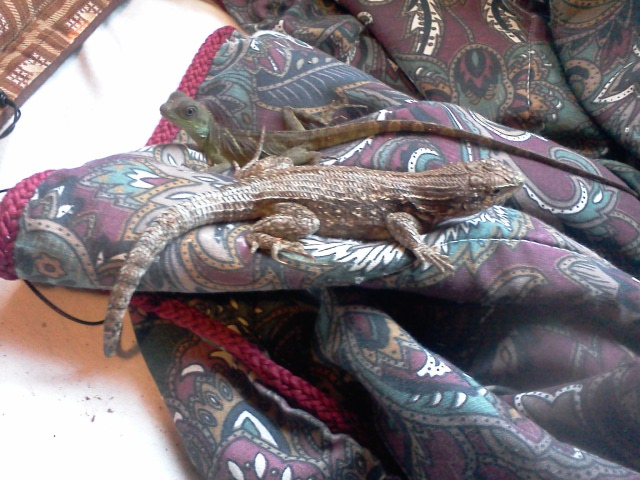 lizards concernings
Questionchinese water dragon&
agama lizard
lizards concernings
Questionchinese water dragon&
agama lizard
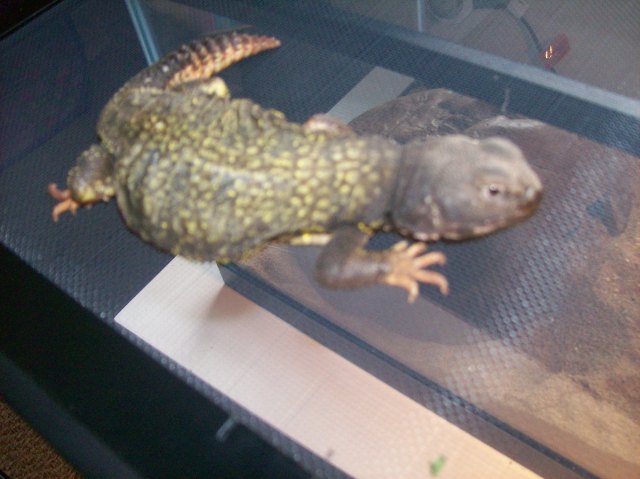 uromastyx question
QuestionMy lizard pretty cool
QUESTION: Hi i ju
uromastyx question
QuestionMy lizard pretty cool
QUESTION: Hi i ju
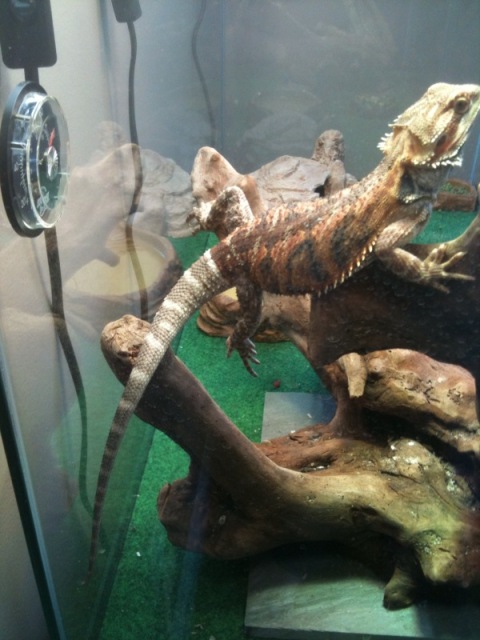 bearded dragon tail turned white
QuestionBDs white tail
QUESTION: My 8 month old
bearded dragon tail turned white
QuestionBDs white tail
QUESTION: My 8 month old
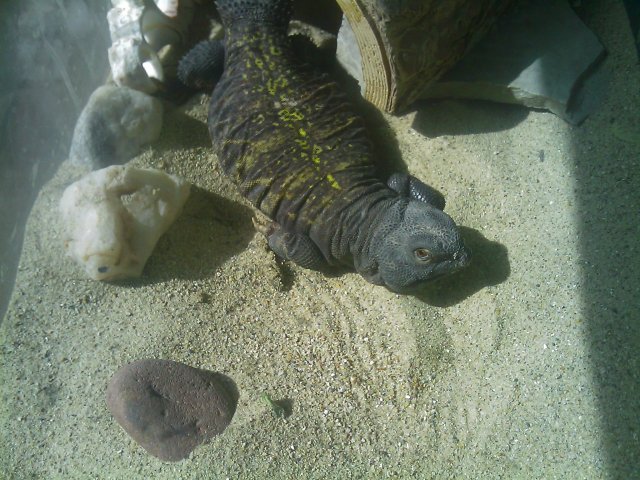 Uromastyx emergency
Question
Bazil
My 7 year old uromastyx has broken his l
Uromastyx emergency
Question
Bazil
My 7 year old uromastyx has broken his l
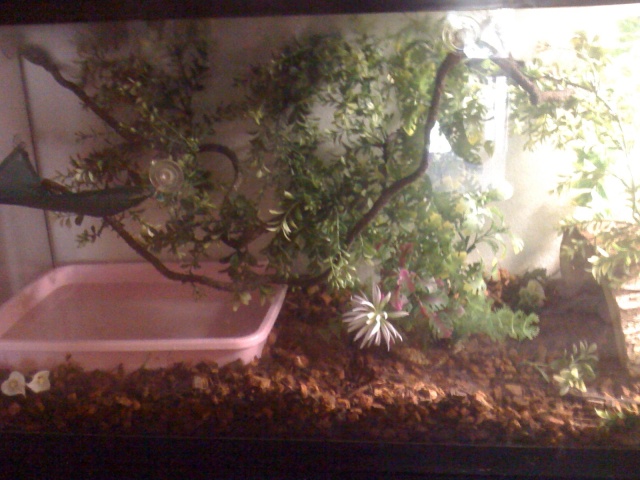 Chinese Water Dragon Not Opening Eyes
QuestionQUESTION: Hello, my name is Morgan and Im an ow
Chinese Water Dragon Not Opening Eyes
QuestionQUESTION: Hello, my name is Morgan and Im an ow